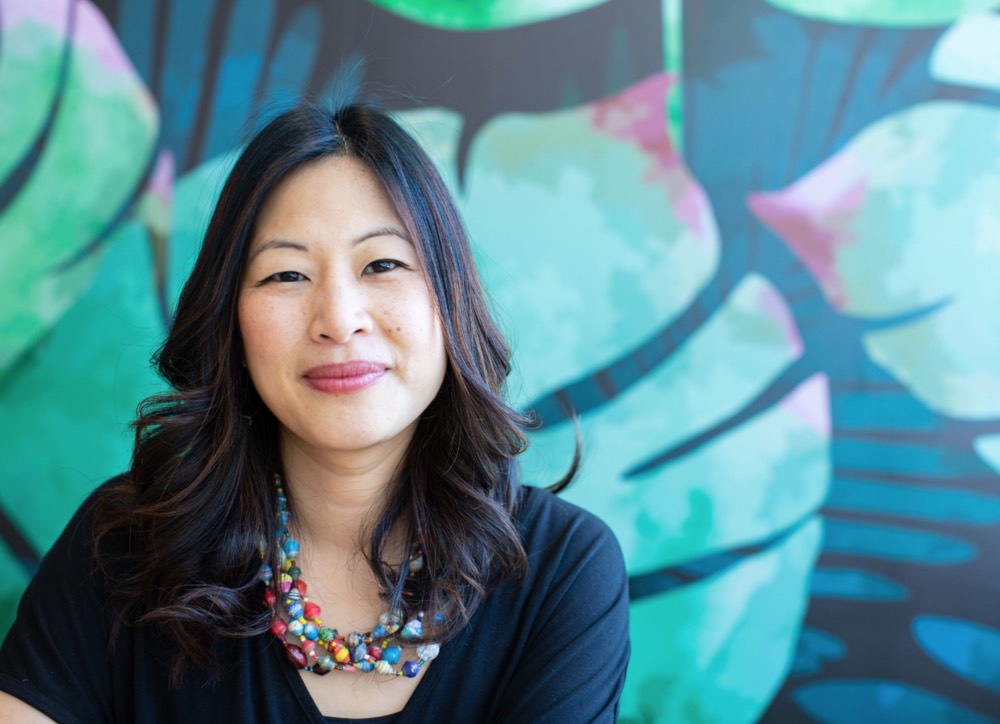From startups to restaurants to high-tech corporations, women are taking the business world by storm and leaving their mark. Borrowell Co-founder Eva Wong shares why diversity is a top priority.
Eva Wong went from having no previous experience in either finance or tech, to co-founding Borrowell with CEO Andrew Graham. Borrowell helps Canadians make better decisions about credit, with free credit scores and reports, along with personalized financial recommendations for loans, credit cards, mortgage rates, and to manage debt.
As well as coming up to one million members from Canada receiving their credit score, Borrowell was recently named 27th on Best Places to Work Under 100 Employees and one of the Best Workplaces for Women by Great Place To Work Canada.
Borrrowell’s team recently went from a staff of 80 percent men to 50 percent staff of people who identify as women. Her and Graham’s inclusivity company value is shown through incentives like varying work social events and mental health awareness including having mental wellness meetings and providing resources like Dialog (telehealth) for their employees.
Wong met Graham through CivicAction — an organization creating and implementing effective solutions to challenges in the Greater Toronto and Hamilton Area — and became co-founders of Toronto Homecoming. Their mandate was to help link Canadian professionals living abroad to great jobs and careers in Toronto. They worked together for a few years before co-founding Borrowell in 2014. The company leads with a strong focus on having a diverse team at its core.
“Every week we share feedback from our members and a lot of people say they’ve improved their credit score by 100 points by following our tips and advice,” Wong says. “Now they know when it’s time for them to apply for mortgages, they feel confident they’re going to qualify and qualify for loans that would be a lower interest rate than what they currently have.”
“We had one customer come in—she had also taken a Borrowell loan product — and said she’s going to be out of debt four years sooner than she otherwise would have been,” Wong says.
Here, a conversation with Wong about diversity and what’s next for Borrowell.
How did you achieve the status of Best Place to Work?
The first thing is we care about it being a great workplace for everybody not just for a majority group. We’ve tried to be thoughtful about underrepresented groups in tech and what it looks like for everyone to feel that this is a workplace for them.
We are thoughtful of our values were and what kind of culture we wanted to create. When we’re interviewing candidates we don’t look for culture fit, we actually want diversity in our culture, but what we do look for is fit for our values.
One of our values is that we’re high-performing and humble. That humility means we’re really open to hearing from other people. Not only from our fellow colleagues but from our customers and other stakeholders. That creates a work environment where we encourage people to disagree with someone if they have a different viewpoint and to share their opinion. There’s a lot of respect for what people have to say regardless of their seniority, how long they’ve been with the company or what position they have.
Number one is defining values and then being serious about the values, which for us means recruiting people who we’ve tried to find values fit for and then promoting people at excelling at things that we value. This would include things like creating a really inclusive environment by seeking out feedback from different people. We have a competency matrix that we use for a promotion that is aligned with our values.
Instagram will load in the frontend.
You don’t hear that too often, my guess is most companies hire someone and then tell them how to do their job.
I would say we’re very different from that, we try to be very specific about what we want to achieve. We don’t specify how people are going to do it so that gives people a bunch of freedom to figure out what works best and allows us to be adaptable and not necessarily commit to a project regardless of what the outcome is. I think people like the empowerment of how we set our company goals and objectives. It is to achieve specific metrics and not be micro-managers about telling people how they have to do it.
During the early days, what were the biggest obstacles you overcame?
I think it’s the feeling that you should know something. What I had to overcome was recognizing that it was okay not to have all the answers and that if I didn’t ask I would never find out the answers. I do think a lot of times it’s in your own head, not wanting to come across as not being knowledgeable, so I tried to be smart around like are there things I can look up and find on my own? Are there things I could ask? When is the appropriate time to ask things? I think sort of figuring all that out was helpful in sort of me getting up to speed in a new industry.
I’ve also been fortunate that I haven’t had as much to face over racism or sexism. I remember watching a video of Ruth Bader Ginsburg saying “sometimes it’s a little helpful to be a bit deaf,” and to not take as much offense, to pick your battles. There may have been unintentional comments around that I wasn’t aware of, times there have been colleagues all of a sudden stand up for me or say “Would you have asked that if she was a man?” If I’m unaware, it doesn’t bother me. I’m focussed on the work that I want to do and that I feel like I have to do.
Instagram will load in the frontend.
How can other companies follow your diversity values?
We definitely have a lot to learn and we’ve learned a bunch from other companies I wouldn’t exactly say we have all the answers. It’s something that we have genuinely cared about and we’ve been really willing to work towards.
There’s a lot of talk about diversity and inclusion but I don’t know if people are willing sometimes to make it a priority in order to achieve. From a diversity perspective, our goal of having a gender-balanced team was put as a company goal the same way we would any other financial metric or user acquisition metric. I think a) stating it as a goal and b) measuring ourselves against it was a way of creating accountability for ourselves.
What’s next for Borrowell?
We’re close to launching a Borrowell mobile app for iOS and Android. We’re getting more excited about how we can help people in their day-to-day lives and make better decisions about their financial situation.








